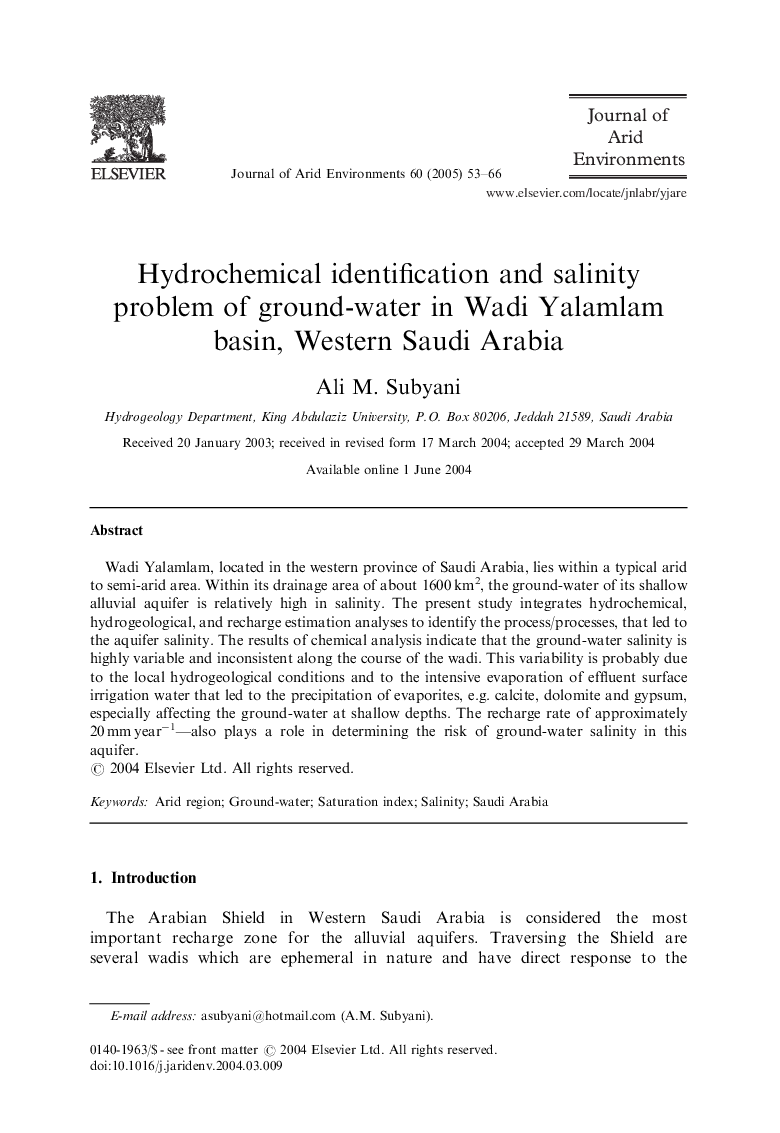| Article ID | Journal | Published Year | Pages | File Type |
|---|---|---|---|---|
| 9447979 | Journal of Arid Environments | 2005 | 14 Pages |
Abstract
Wadi Yalamlam, located in the western province of Saudi Arabia, lies within a typical arid to semi-arid area. Within its drainage area of about 1600 km2, the ground-water of its shallow alluvial aquifer is relatively high in salinity. The present study integrates hydrochemical, hydrogeological, and recharge estimation analyses to identify the process/processes, that led to the aquifer salinity. The results of chemical analysis indicate that the ground-water salinity is highly variable and inconsistent along the course of the wadi. This variability is probably due to the local hydrogeological conditions and to the intensive evaporation of effluent surface irrigation water that led to the precipitation of evaporites, e.g. calcite, dolomite and gypsum, especially affecting the ground-water at shallow depths. The recharge rate of approximately 20 mm yearâ1-also plays a role in determining the risk of ground-water salinity in this aquifer.
Related Topics
Physical Sciences and Engineering
Earth and Planetary Sciences
Earth-Surface Processes
Authors
Ali M. Subyani,
